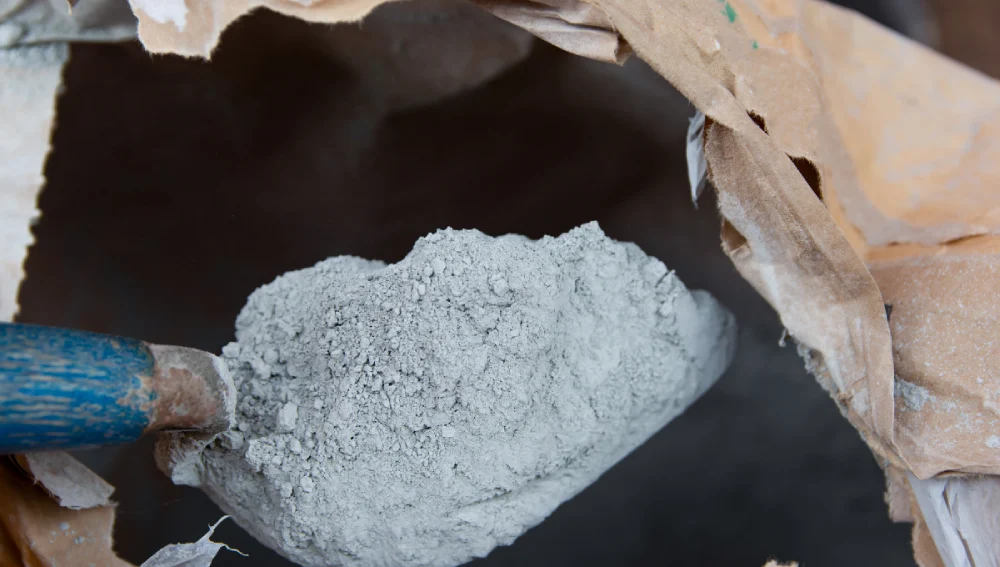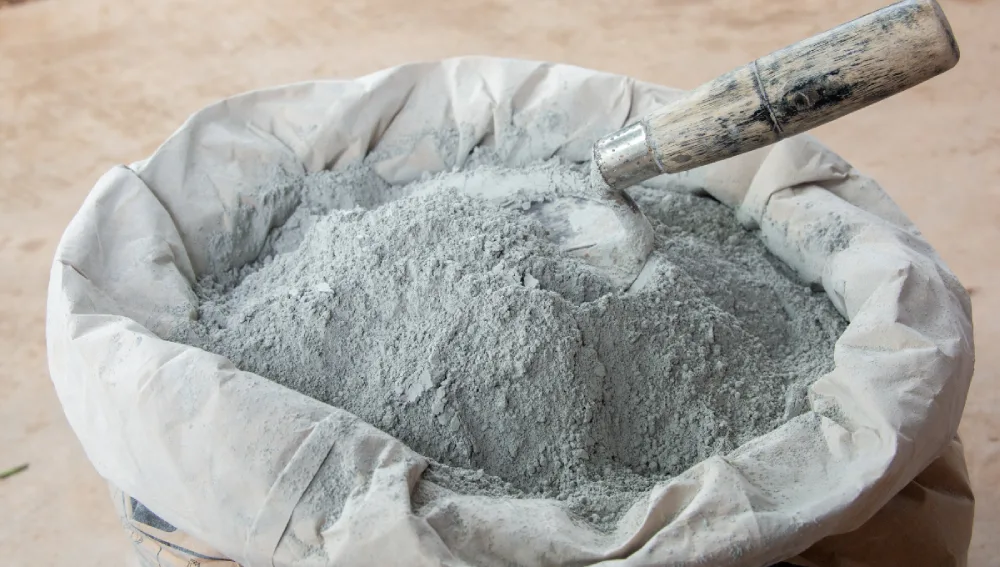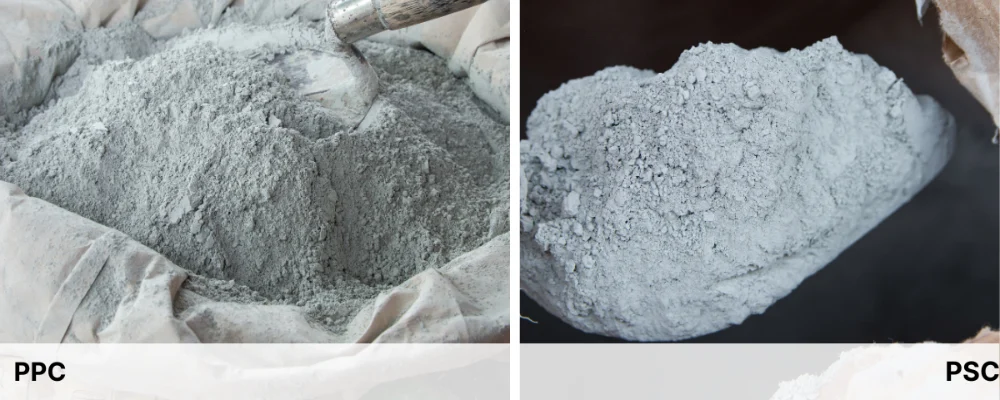Portland cement is a common material that is used in construction. There are two distinct types of variations in Portland cement, namely Portland Pozzolana Cement (PPC) and Portland Slag Cement (PSC).
Based on the suitability for different construction projects , the cement can differ. This blog gives a guide on the differences between PPC and PSC, which can help you determine the right type of cement.
Portland Pozzolana Cement (PPC)

PPC or Portland Pozzolana Cement is a form of hydraulic cement. As the name indicates, it is a mixture of Portland clinkers and pozzolana materials, namely fly ash.
The strength of these cements comes from calcium hydroxide and fly ash. When water reacts with these two materials, they create a bond that leads to the hydration process and results in enhanced strength of the cement.
Advantages of Portland Pozzolana Cement
There are certain advantages to PPC, and they are listed below:
- Workability: PPC has high workability, is easy to handle, and can undergo a variety of easy construction applications.
- Less Heat Release: PPC releases less heat compared to other cement during the hydration process. This reduces cracks caused by overheating and protects the overall building structure.
- Endurance: PPC can withstand environmental damage caused by moisture permeation.
- Resilient to Chemical Attacks: PPC is not adversely affected by sulphide or chloride attacks, ensuring stability in demanding environments.
- Sustainability: PPC is an eco-friendly option and can withhold high-performance benchmarks.
Applications of PPC
The application of PPC is diverse due to its compatibility and versatility, which play a vital role in infrastructure projects. The applications include:
- Plastering
- Residential buildings
- Marine structures
- Construction of sewage pipes and dams, and
- Masonry work.
Portland Slag Cement (PSC)

PSC is a blend of cement consisting of Portland cement clinker, gypsum and blast furnace slag. Slag is essential because it is a non-metallic product that contains more than ninety percent of a mixture of silicates and alumino-silicates of lime.
PSC is made by a blend of 35-70% slag, 25-65% clinker, and 3-5% gypsum. The resultant product contributes to a vast number of constructions.
Advantages of PSC
The primary pros of Portland Slag Cement are mentioned below:
- PSC can withstand alkali-silica reactions. This reaction occurs when a swelling takes place in concrete due to the reaction between alkali oxide and silica over time.
- It is less susceptibleto cracking.
- PSC has a good finish, and the painting process is often simplified
- It is resistant to chloride and sulphate attacks.
Applications of PSC
There are several applications of Portland Slag Cement, as explained below:
- PSC is widely used to make roads and flyovers.
- PSC is often used to construct marine structures.
- PSC works great in industrial, residential, and commercial buildings.
PPC Vs PSC Cement
| Particulars | Portland Pozzolana Cement (PPC) | Portland Slag Cement (PSC) |
| Composition | It is a mixture of Portland cement clinker, fly ash and gypsum | It is a mixture of Portland cement clinker, blast furnace slag and gypsum |
| Pozzolanic Material | It contains pozzolanic substances namely volcanic ash, silica fume, or fly ash. | It primarily contains fine slag produced from blast furnace (a by product from steel industriesy) |
| Setting Time | It requires additional hours to set compared to OPC and thus can extend the hours of working. | It can harden a little faster compared to PPC. |
| Development of Strength | Construction structures that require long term stability can choose PPC. PPC takes time to harden but slowly achieves maximum strength. | It can be used in buildings that require rapid strength development. |
| Fineness | It is finer and denser with low permeability. | The fineness of PSC is lesser compared to PPC. |
| Hydration Heat | It releases low levels of heat during the hydration process, decreasing the risk of cracking. | It releases heat higher than PPC but is lesser than OPC. |
| Durability | It is highly resistant to aggressive and harsh environmental conditions. | It is used in marine construction due to its high resistance to sulphate and chloride attacks. |
| Workability | It is easier to work with due to higher fineness. | It is less easy to work with due to lower fineness. |
| Colour | Due to the presence of pozzolanic material it is dark grey in colour. | The Slag content gives PSC a lighter colour compared to PPC. |
| Environmental Impact | It has eco-friendly byproducts, namely fly ash, decreasing CO2 emissions. | Similar to PPC, PSC utilises a byproduct of steel which also reduces the carbon dioxide levels in the atmosphere. |
| Cracking | It has low levels of shrinkage and risk due to the slow hydration process. | It has moderate cracking compared to PPC. |
| Demand of Water | It generally needs high levels of water to maintain its workability. | It requires a moderate amount of water compared to PPC for its workability. |
| Strength of Bond | PPC has higher strength with steel and thus reduces the corrosion risks. | Its strength is less compared to PPC but it has good reinforcement bonds. |
| Surface Finish | PPC offers a smooth finish and decreases the need for additional finishing work. | The finish provided by PSC is less smooth. |
Conclusion
In summary, it is vital to understand the differences between Portland Pozzolana Cement and Portland Slag Cement. Both of these cements have wide applications and differ in their composition and physical properties However, it is important to consult a structural or civil engineer to recommend the most suitable type for your specific project requirements.
FAQs
Portland Slag Cement is mostly used in general construction work, including in concrete mix, plasterwork, and masonry and is well suited for it.
There are differences between PPC and PCC as they have different compositions and physical properties.
Both PPC and PSC have different purposes. PPC is durable and has slow development in strength. On the other hand, PSC has good resilience and early strength development.
There are three types of cement, namely Portland Pozzolana Cement (PPC), Portland Composite Cement (PCC), and Portland Slag Cement (PSC); each of these has different pros and cons and can be chosen based on suitability for specific project requirements.

